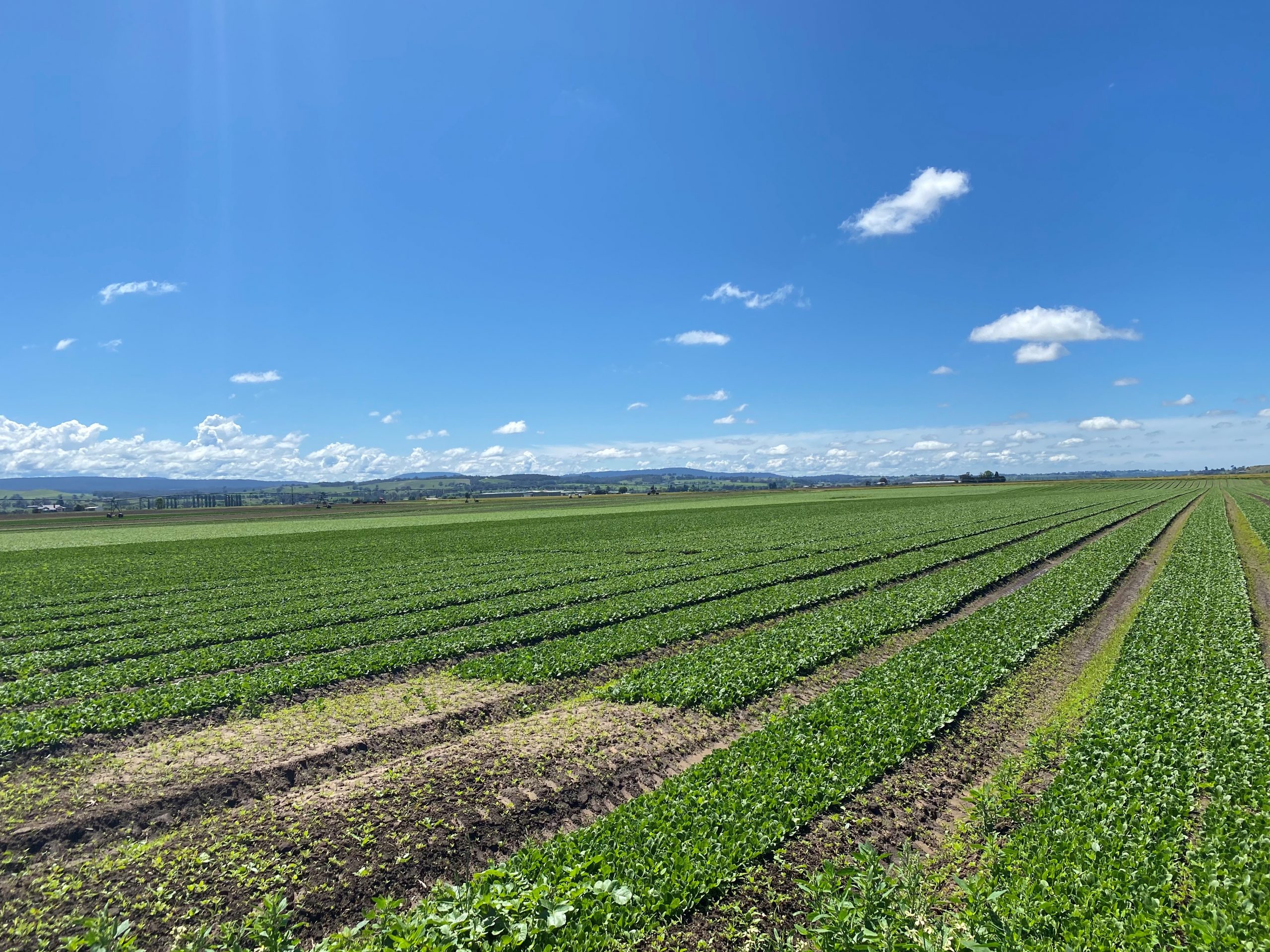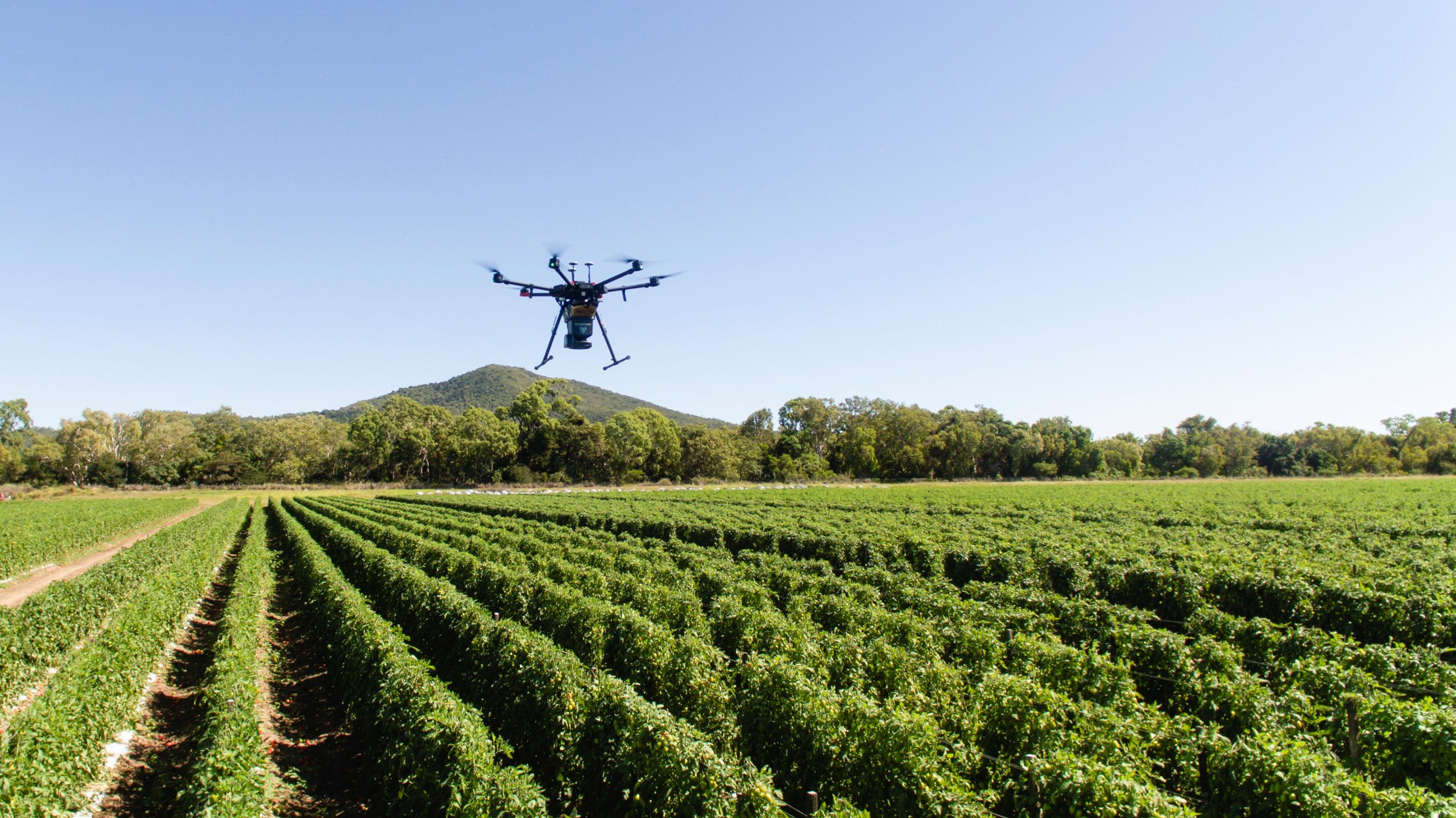
Gippsland grower groups looking forward to a collaborative future
1 December 2020
Drone takes farming practices into the future
1 December 2020In 2020, Lockyer Valley Growers Inc. hosted a series of workshops with producers and industry in conjunction with entomologists from the Department of Agriculture and Fisheries, Queensland. These were aimed at preparing industry for fall armyworm’s expected dispersal into more southern regions. VegNET Regional Development Officer Zara Hall reports.
Four vegetable industry preparedness workshops have been undertaken in southern Queensland that focused on identification, biology and management of fall armyworm. Sessions were held at Rugby and Mulgowie farms in the Lockyer Valley and Kalfresh in the Fassifern Valley, with a focus on fall armyworm management in sweet corn. A fourth session was hosted with agronomists based in the southern Queensland region.
Department of Agriculture and Fisheries, Queensland (DAF QLD) entomologist Adam Quade provided workshop attendees with fall armyworm specimens of various development stages including egg masses, larvae ranging from first instar through to sixth instar, as well as male and female adult moths.
Other species of moths – commonly confused with fall armyworm – were also provided as a comparison. Workshop attendees used macro lens attachments on their smart phones. These were supplied by DAF QLD entomologists for the sessions, enabling participants to zoom in on important diagnostic features more easily viewed under magnification.
“Many leaf eating caterpillars share similar visual characteristics and damage symptoms,” Mr Quade said.
“Fall armyworm larvae are most distinctive when fully grown, while distinguishing younger larvae can be more difficult. It is important not to rely on a single characteristic when identifying larvae.
“Larger larvae can range in colours but are generally brown to grey with a dark head. There are four dark spots forming a square on the second last segment. Large larvae have a pale inverted ‘Y’ shape between the eyes.”
Overcoming resistance
A major focus of the workshops was the need for a resistance management strategy in crops affected by fall armyworm, as growers are already dealing with an insecticide-resistant pest.
“In sweet corn, the challenge is managing damage and resistance in Helicoverpa armigera and fall armyworm simultaneously,” DAF QLD Principal Entomologist Melina Miles said.
“Resistance management will be an issue for crops where products used for fall armyworm are already used to manage pests with resistance to that product, or when fall armyworm is controlled with a product that is still effective against another pest. The risk of developing resistance is high.”
The fall armyworm-specific virus, Fawligen® (Spodoptera frugiperda multiple nucleopolyhedrovirus) was identified by workshop participants as a desirable option. However, because the fall armyworm virus is a novel virus – and potentially poses a risk to native caterpillar species – it must undergo a rigorous review process by Australian Quarantine and Inspection Service before being considered for registration in Australia. This review process is currently underway.
Effective pesticide rotation was identified as a management strategy needing improvement.
“Rotating chemicals on a weekly basis is not an effective resistance management strategy; in fact, it actually increases the risk of resistance developing because every generation is exposed to the same chemicals,” Dr Miles said.
“To minimise selection pressure on pest populations, chemicals must be rotated in such a way that two consecutive generations are not exposed to the same mode of action. To minimise selection for resistance in a crop, a strategy like that illustrated for maize (see Figure 1), could be devised for other crops.”

Figure 1: An example of a combined fall armyworm and Helicoverpa resistance management strategy in maize. NPV does not pose a resistance risk for Helicoverpa, so it can be used in any window if treating only Helicoverpa. Figure supplied by Department of Agriculture and Fisheries QLD.
Resources and further information
Below is a list of online resources about fall armyworm.
- Beatsheet blog – fall armyworm page.
- Beatsheet blog – similar looking species (poster).
- Fall armyworm development calculator.
- CropLife Australia – Resistance management strategy for fall armyworm.
Find out more
Please contact John Duff from DAF QLD on 0418 726 597 or at john.duff@daf.qld.gov.au, or VegNET Lockyer Valley RDO Zara Hall on 0456 956 340 or at ido@lockyervalleygrowers.com.au.
VegNET – Lockyer Valley is a strategic levy investment under the Hort Innovation Vegetable Fund.
This project has been funded by Hort Innovation using the vegetable research and development levy and contributions from the Australian Government.
Project Number: VG19010
Cover image: Workshop participants at Mulgowie discuss management options for fall armyworm with DAF QLD entomologist, Adam Quade.
This article has appeared in Vegetables Australia – Summer 2020/21. To read the full publication, please click here.

